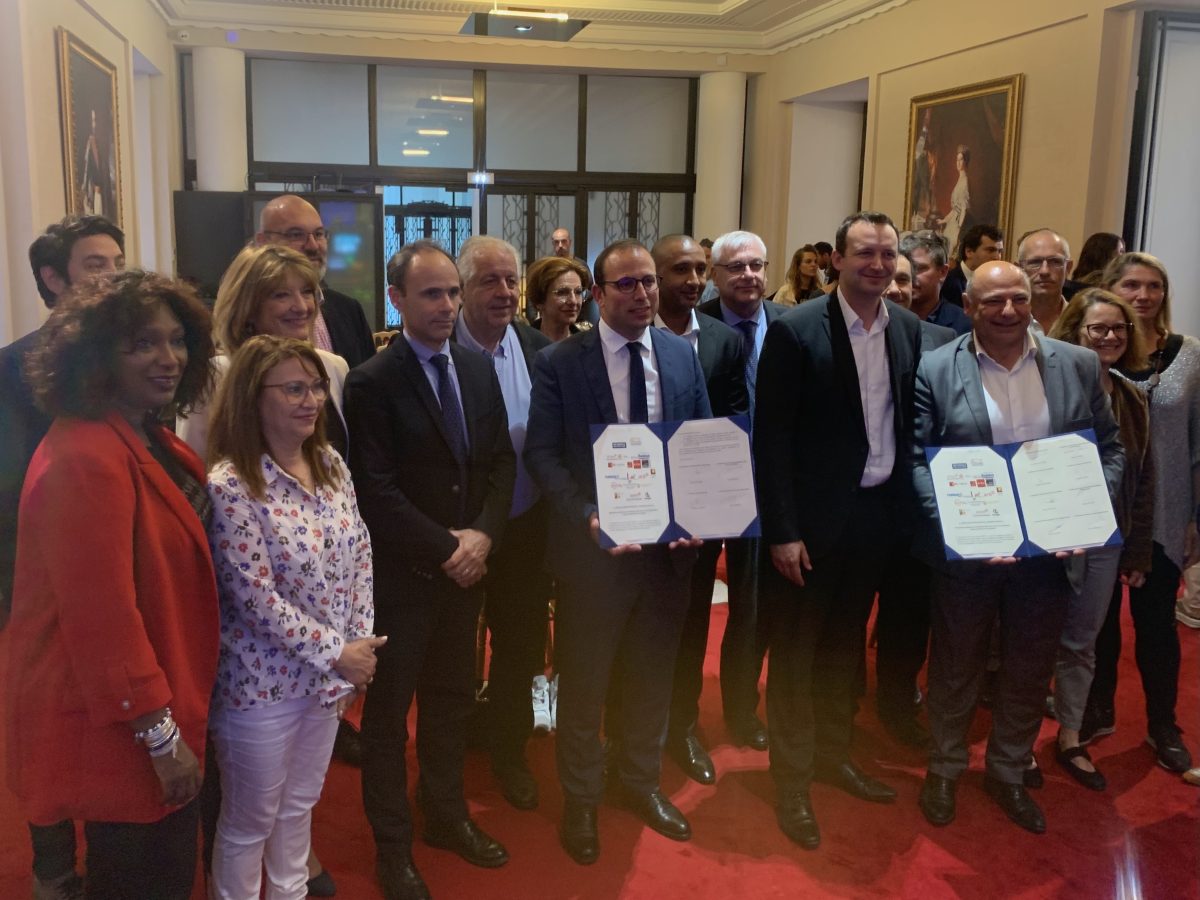The Nice Côte d’Azur Metropolis and social housing landlords presented an action plan against real estate speculation this Friday, May 5. With concrete measures, they commit to regulating the prices of social housing in the area.
“The housing crisis is here. It is strong and powerful,” declares Anthony Borré. In this regard, the Metropolis and the social housing landlords of the area tackled the housing crisis this afternoon. This “extremely worrying” situation, which he calls a “social bomb,” is occurring in a tense social, economic, energy, and political context, which the first deputy mayor was keen to remind.
They commit to addressing real estate speculation on the Côte d’Azur by signing a joint declaration. A practice he deems “unacceptable” and “scandalous” on the part of some developers. The purpose of this agreement is to control and regulate the prices of rental social housing.
A public-private partnership charter in the same spirit was adopted in 2012. However, it needs to be updated to meet current needs. This is why the Metropolis and social housing landlords wanted to take the initiative while awaiting its update.
Capped Prices
Anthony Borré, vice-president of the NCA Metropolis, announces concrete actions, the result of “collective reflection and work,” he specifies. Measures he wants to be “strong” and “territorial.” From now on, there will be a maximum price in off-plan purchases (Véfa) at 2,250 euros excluding tax per square meter of habitable surface, including parking space.
This only concerns housing for sale in the state of future completion, known as Véfa in real estate law. The Véfa contract is commonly referred to as “off-plan sales.” Therefore, beyond this amount, social landlords commit not to purchase these projects from private developers.
The second major change: the cost of the land charge for Véfa housing is capped at 300 euros excluding tax per square meter of floor space. Let’s recall that the land charge includes the “gross” cost of the land and all the costs advanced to acquire it, such as notary fees or banking interests.
This means that the Metropolis will refuse to subsidize operations that exceed the price cap and land charge. Thus, the Metropolis establishes itself as a market regulator. A way to prevent speculation and bidding wars among social operators. All this while continuing to build, as “this remains a priority,” states the deputy mayor in charge of housing and urban renewal.
A Response to “Troubling” Figures
“Rental prices are soaring, and construction and land costs are exploding,” he reports. The consequences are visible. The NCA Metropolis area is not affected by the drop in property prices observed nationwide. On the contrary, they keep climbing. “This trend has resulted in strong pressure from real estate promotion on social landlords, potentially leading to a surge in Véfa acquisition prices, and making it increasingly difficult for social landlords to find economic balance,” he explains.
In Nice, there are 1,000 additional applicants for social housing from 2021 to 2022, compared to 100,000 across France. The rise in material costs, the war in Ukraine, inflation, and lending rates create a challenging context. “Housing accounts for 30% of a household’s budget income on average,” he reminds. And 68% of households are postponing their real estate projects because they cannot access credit.
Pascal Friquet, president of the AR of social housing Paca-Corse, reminds that the region has 335,000 social housing units. He points out another issue. “We have a rotation rate that is decreasing year by year.” Meaning the housing progression pathway is blocked.
Anthony Borré Addresses the Government
This declaration comes “in a national context on the housing issue that is extremely concerning,” worries Anthony Borré. The first deputy takes the opportunity to address the government on this issue which, according to him, is insufficiently addressed at the national level. That is why, in an op-ed published in l’Opinion, this Friday morning, May 5, he calls for a two-year moratorium on the Climate and Resilience law, which he believes poses “a major risk to the housing market.”
He points out contradictions that, according to him, do not facilitate resolving this crisis. Such as the zero net land artificialization approach by 2050 coupled with the legal obligation to achieve a rate of 25% social housing in his municipality.


